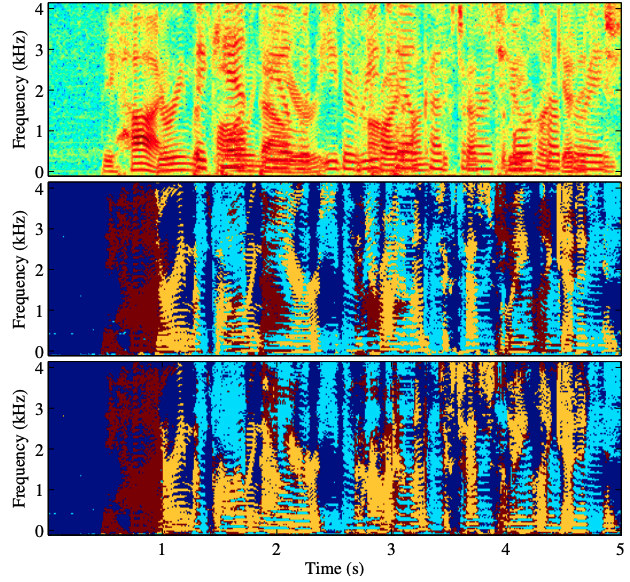On permutation invariant training for speech source separation
We study permutation invariant training (PIT), which targets at the permutation ambiguity problem for speaker independent source separation models. We extend two state-of-the-art PIT strategies. First, we look at the two-stage speaker separation and tracking algorithm based on frame level PIT (tPIT) and clustering, which was originally proposed for the STFT domain, and we adapt it to work with waveforms and over a learned latent space. Further, we propose an efficient clustering loss scalable to waveform models. Second, we extend a recently proposed auxiliary speaker-ID loss with a deep feature loss based on "problem agnostic speech features", to reduce the local permutation errors made by the utterance level PIT (uPIT). Our results show that the proposed extensions help reducing permutation ambiguity. However, we also note that the studied STFT-based models are more effective at reducing permutation errors than waveform-based models, a perspective overlooked in recent studies.
PDF Abstract


 WSJ0-2mix
WSJ0-2mix